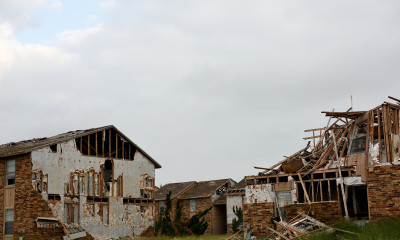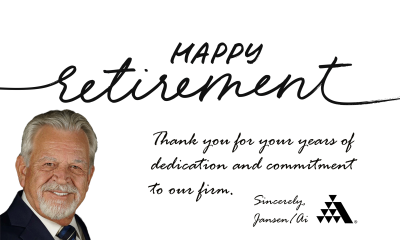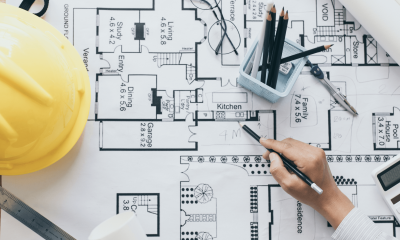Choosing Restoration Contractors: Costly Lessons Learned
Authored by:
Joe Lewis, Public Adjuster
Jansen/Adjusters International
Occasionally, your home or personal property may need some repairs. These can be simple maintenance repairs or major damage restoration projects resulting from fire, water, hurricane storms, or other unexpected disasters. When you consider a contractor for restoration services, you need to ensure you are hiring the right one for the job. Public Adjuster Joe Lewis has seen firsthand how things can go wrong during an insurance claim’s restoration process. He reflects on some hard lessons learned when the wrong contractor was involved.
Although a lightning strike caused this specific incident, this could also occur regardless of the cause of damage, including water, mold, or hurricane storm damage. Here is his story.
A Story of a Restoration Project Gone Wrong
A homeowner hired our team to perform adjusting services for a lightning strike at his home. From the beginning, we assigned a structure adjuster to handle his insurance claim.
Dozens of contractors showed up behind the fire department shortly after the incident. Some were reputable, and some were what you might refer to as “ambulance chasers.” Ultimately, the confused homeowner chose a contractor that a friend referred.
Having extensive experience with restoration companies, we recommended that the insured ask specific questions to understand better who was performing the work. Like many others, this homeowner had never contracted for major renovations or remodels and did not know what to expect when rebuilding his home.
The contractor assured the client that he used Xactimate estimating software (an insurance industry standard) and had experience in working with property damage insurance claims related to lightning strikes. He also gave his word that he could handle all the insurance paperwork and requirements of the mortgage lender and promised to do a high-quality job with the restoration.
I sensed that some things did not add up, so our team pressed the homeowner to verify the contractor’s credentials and request examples of the contractor’s work. We were also concerned that our client would hire the wrong contractor and have a second disaster — this time with the repairs. When the mortgage paperwork/requirements for the rebuilding came in, it was clear that the contractor did not have the very basics checked off, such as:
- The contractor did not have an active bond or insurance in place
- The contractor immediately began modifying the scope of work and the project price based on the repairs he thought were needed
- The contractor had not been entirely truthful about his experience using Xactimate estimating software
In the end, these red flags cost the restoration contractor the entire project. Fortunately for the homeowner, it was early in the process. However, it was a close call.
The homeowner eventually vetted a reputable contractor and got the project back on track.
How to Protect Yourself from Unqualified Restoration Contractors
You can learn from the mistakes of the client above and protect yourself from questionable restoration contractors. Hiring a licensed, professional, experienced contractor for your restoration project from the start will save you the time and the cost of replacing careless work and receiving an inadequate claim settlement.
Perform Thorough Background Checks
Do not expect the mortgage company, a friend, or anybody else to verify your contractor’s credentials for you. Verifying credentials is your responsibility. Always check the background of contractors before hiring them, and do not just take their word for it. For example, if they say they use Xactimate estimating software, request to see examples of their Xactimate estimates completed for recent customers.
Check their rating with the Better Business Bureau (BBB) for potential previous complaints.
Ask for Certification
You will know a restoration contractor is qualified if they meet all the required certifications. For instance, they should be licensed, insured, and bonded. A license guarantees that they have the necessary training and have met the regulations necessary to practice. A bond and insurance coverages will give you extra protection should something go wrong.
Vet their References
A good contractor should provide references who can vouch for their credibility and workmanship. In addition, you can contact their previous clients to ask how their projects went. Professional damage restoration contractors can also give you an onsite tour of one of their projects. At the very least, ask for pictures of their recent projects.
Read our previous article for more details on how to protect yourself when hiring mitigation and restoration companies.
Joe Lewis is a Public Adjuster at Jansen/Adjusters International. Wearing many hats, his day-to-day includes anything from loss consulting, reviewing repair estimates & policies, and negotiating towards a settlement that benefits the insured. You can connect with Joe on LinkedIn or contact him at our Houston address.













